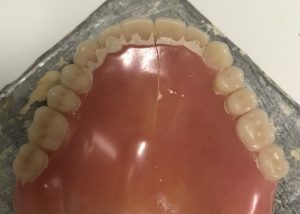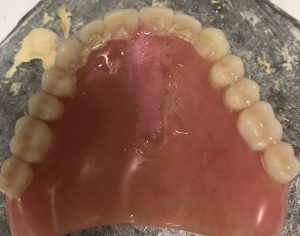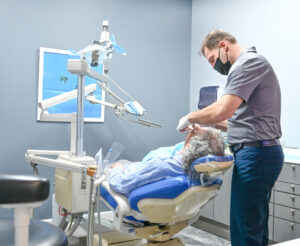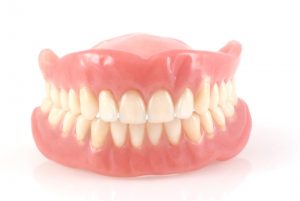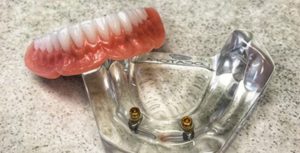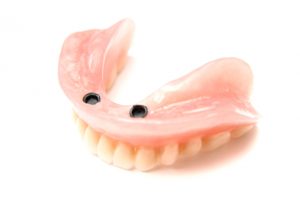If you’ve noticed a crack or break in your dentures, you’re probably wondering ‘What now?’ You need reliable denture repairs from a dentist rockville md, and you need them fast. This article goes straight to the point, outlining quick recognition of damage, emergency measures you can take, and why professional repair is vital for your denture’s longevity and your oral health.
Key Takeaways
- Dentures require timely repair to maintain oral health and functioning, with signs of needed repairs including warping, chips, cracks, ill-fitting dentures, and change in functionality; DIY methods may miss minor damage like microfractures and lead to worsening conditions.
- Immediate denture repairs should avoid household glues or adhesives, which can be toxic and damaging; instead, use FDA-approved denture repair kits for temporary fixes and seek professional repair services for long-term solutions and proper denture alignment to avoid health risks.
- Proper denture maintenance post-repair is crucial, involving rinsing after meals, daily brushing with soft-bristled brushes, soaking in a mild dental cleaning solution overnight, avoiding abrasive and hot cleaning methods to prolong denture life, and seeking follow-up dental visits for a good fit.
Understanding Denture Damage and Repair Needs
Dentures, like any other dental appliances, are susceptible to damage. Daily wear and tear, accidental drops, or improper usage can lead to broken dentures. But how do you know when your dentures need repair? Here are some signs you should not ignore:
- Warping
- Chips
- Cracks
- A change in fit
- Difficulty chewing or speaking
- Breakage
Ignoring these signs can lead to oral health problems such as mouth sores, gum irritation, and fungal infections. Hence, timely denture repair is not just about restoring your smile but also about maintaining your overall oral health. Denture repair allows dentists to fix problems before they worsen, saving you from costly and extensive future repairs.
Identifying Your Denture’s Damage
Recognizing the type of denture damage accurately often necessitates a professional inspection. For instance, microfractures, a type of denture damage, can only be detected during a professional inspection.
Relying solely on DIY denture repair might miss minor damage such as microfractures or a broken edge, leading to potential spreading. Therefore, halting the spread of minor damage is pivotal for preserving the denture’s integrity and averting more significant repairs.
When to Seek Professional Denture Repair Service
If your dentures feel uncomfortable, slip, don’t fit properly, or make noise when talking or eating, it’s time to seek a professional repair service as they may be worn or broken. Likewise, mouth sores, bleeding gums, or persistent bad breath can be signs that your dentures no longer fit correctly and need professional adjustment or repair.
Neglecting a dentist’s advice and delaying denture repair may result in further damage, affecting the denture’s function and potentially leading to complications. Especially, dentures that require complex repairs or are extensively damaged should be fixed by a professional, as DIY methods can cause further problems.
Immediate Actions: Handling Emergency Breaks with Care
When dentures break, the first step is to examine the breakage to determine the extent of the damage. However, in the process of doing so, it is important to avoid the temptation to use home adhesives or household products for denture repair. These can cause serious damage to the dentures and should be avoided.
Temporary Fixes: Using a Denture Repair Kit
While professional help is always recommended, there are times when you might need a temporary fix for minor dental issues. This is where an emergency denture repair kit comes in handy. However, it should only be used as a temporary solution and not a permanent fix.
When choosing a denture repair kit, it is vital to make sure it is FDA-approved to ensure safe dental repairs and avoid toxicity. For minor cracks or chips in dentures, denture adhesive can serve as an inexpensive and easy-to-use option for repair.
The Dentemp Repair-It Denture Repair Kit contains all the necessary items, including a denture repair mixture, to fix breaks, mend cracks, and replace loose teeth quickly. It’s a convenient and efficient solution for denture repairs.
Long-Term Solutions: Why a Quick Fix Isn’t Enough
While a quick fix might seem attractive in an emergency, it is not a sustainable solution. DIY denture repairs using common household glues can be toxic and are not suitable for intraoral use, carrying severe health risks.
Improper DIY denture repairs can lead to:
- Misaligned dentures, causing discomfort and potential harm to both the dentures and natural teeth
- Denied insurance claims
- Negating warranties
- Incurring additional expenses for professional repair or replacement
It is important to seek professional help for denture repairs to ensure proper alignment and avoid these potential issues.
It’s also worth noting that temporary fixes with DIY kits do not address the fundamental reasons behind denture damage, often resulting in a short lived solution that could exacerbate existing problems.
The Denture Repair Process: What to Expect
So, what does the professional denture repair process entail? It involves:
- Assembling broken parts and securing them with sticky wax
- Reinforcing the assembly with materials like burs or plastic sticks
- Applying a separating medium
- Preparing the fractured surfaces for bonding.
Methods such as applying self-cure acrylic resin directly to the fractured area or waxing and flasking followed by packing with resin and curing under pressure are used to repair a denture. Once the denture is secured and repaired, the final steps include deflasking, and meticulously finishing and polishing the denture to restore its appearance and functionality.
An accurately mixed PVS impression material and custom tray are used after the repair to ensure the denture will fit properly, taking care to avoid trapping loose tissue in the impression.
Making an Impression: The First Step to a Fixed Denture
A key step in the denture repair process is creating a precise impression. The primary impression for a fixed denture repair process is taken with either a stock tray or, for a patient with a large arch, a custom tray used for diagnosis and treatment planning.
A final impression is created using light body PVS impression material in a custom tray to record denture coverage areas and adjacent anatomical landmarks essential for denture retention and stability. The impression must capture specific structures and must be checked carefully to ensure all the necessary structures have been captured accurately, as discrepancies can impact the fit and functionality of the finished denture.
Quality Materials: Choosing the Right Denture Repair Material and Mixture
Quality forms the cornerstone of any repair process, and denture repair is no different. Dental professionals have access to advanced materials, essential for quality denture repairs.
The availability of state-of-the-art technology allows dental professionals to mend cracks and replace loose teeth effectively. The blend of top-tier materials and expert skill is paramount for durable denture repairs, guaranteeing the dentures operate as expected and avert further damage.
Caring for Your Repaired Denture
Post-repair care is as important as the repair process itself. Here are some steps to follow for proper denture care:
- After eating, dentures should be removed and rinsed to eliminate food debris and loose particles.
- Dentures must be brushed at least once daily with a soft-bristled toothbrush specifically designed for dentures.
- Use a non-abrasive denture cleanser to remove plaque and other deposits.
Following these steps will help keep your dentures clean and in good condition.
Before reinserting dentures in the morning, they should be rinsed thoroughly, especially if soaked overnight in a denture-soaking solution, to avoid ingesting harmful chemicals.
It’s also vital to handle dentures with care to avoid bending or damaging the plastic or clasps during cleaning and storage, and to keep dentures moist to maintain their shape when not in use.
Follow-Up: Ensuring Best Results After Repair
Follow-up visits with a dentist or denture repair lab are essential to confirm that repaired dentures still fit properly and maintain comfort for the wearer. The frequency of denture checkups should be determined by a dentist, who can assess an individual’s specific needs after denture repair.
Professional cleanings may be recommended as part of the follow-up routine to maintain the condition of the repaired dentures.
Maintenance Tips: Keeping Your Dentures in Top Shape
Maintaining your dentures in top shape involves a regular cleaning routine. Use mild soap or dental cleaning solutions instead of toothpaste for brushing dentures, as many toothpaste formulations are abrasive and can damage the surface of dentures.
In addition to brushing, dentures should be soaked overnight in a mild dental cleaning solution to ensure thorough cleanliness. Avoid using products containing bleach or harsh cleansers on dentures, especially those with metal parts, as they can weaken the dentures and tarnish any metal components.
Never use hot or boiling water to clean dentures, as this can cause the dentures to warp and no longer fit properly. A properly cared for denture has an average lifespan of 7 to 10 years, provided they are consistently cleaned and soaked each day using non-abrasive materials.
Selecting the Best Solution for Your Broken Denture
When dentures are extensively damaged and cannot be repaired, a full replacement becomes necessary, especially in the missing tooth area. In such cases, the patient will need to have new denture teeth made.
Denture relines are advisable when dentures become loose or uncomfortable, involving a process where new material is added on the inside to ensure a snug fit against the gums. A denture rebase is a solution that goes beyond relining, replacing the entire outside surface of the denture for a renewed fit and improved durability.
If dentures become loose, professional advice should be sought promptly as they may cause irritation, sores, infections and might require relining for a proper fit.
DIY vs. Professional Denture Repair
While DIY methods may seem convenient, seeking professional help from a denturist for repairing broken dentures is generally recommended.
The risks involved in DIY denture repair far outweigh the initial convenience, especially when the risk of further damage and potential health risks are considered.
Finding a Reputable Denture Repair Lab
Having access to emergency denture repair services is vital for rapid restoration, providing quick fix solutions for denture emergencies. For convenience, mail-in denture repair services provide a great solution, with repairs often completed the same day and sent back quickly.
Same-day walk-in repair services offer immediate resolution to common denture issues such as cracks, relining, and fixing broken partial clasps. However, when selecting a repair service, access to the latest technology and high-quality materials is essential for durable and effective denture repairs.
Summary
So, there you have it – a comprehensive guide to denture repair. From understanding denture damage, handling emergency breaks, the repair process, and post-repair care, to choosing the right solution for your broken denture – we’ve covered it all! But remember, when in doubt, always turn to a professional. Your smile is too precious to risk!
Frequently Asked Questions
Can denture be repaired?
Yes, temporarily fix your dentures using a denture repair kit in an emergency, but always seek professional repair to ensure proper function and safety. Using other adhesives or glue products can be harmful.
What is the best thing to fix dentures?
The best thing to fix minor cracks or chips in dentures is denture adhesive. It is easy to use, relatively inexpensive, and can help the dentures fit securely in place again.
What kind of glue can you use to fix dentures?
You should use dental-grade resin to fix dentures as it is the most durable and meant for dental use. Super glues or crazy glues are not recommended for this purpose, and acrylic resin can be an alternative if cost is a concern.
What are the signs that my dentures need repair?
If you notice warping, chips, cracks, or a change in fit, along with difficulties in chewing or speaking, your dentures may need repair. It’s important to address these issues promptly to ensure the proper function of your dentures.
Can I use household products to repair my broken dentures?
No, using household products to repair dentures can cause serious damage and should be avoided.

